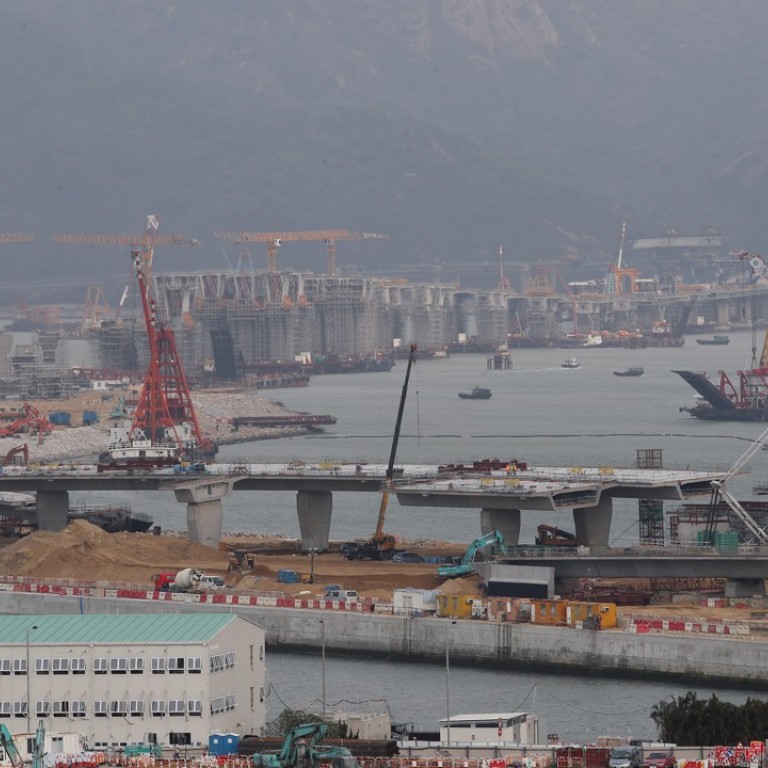
Hong Kong transport chief ‘not told for nearly a year’ about mega bridge scandal
Anthony Cheung reveals he was informed only last month when graft-busters arrested employees of lab service contractor over faking concrete test results
Hong Kong’s transport minister has revealed that he was not informed for almost a year about irregularities in a multibillion-dollar bridge project, only finding out from graft-busters last month.
The Civil Engineering and Development Department, which outsourced the lab service, and the Highways Department, which monitors the bridge project, had failed to inform Cheung or his bureau about the irregularities they discovered in July last year.
“I only knew about this scandal on May 19 ... Of course I [would like to be informed] by other departments,” Cheung said.
I only knew about this scandal on May 19
Also at the meeting, Director of Highways Daniel Chung Kum-wah said that as of June 1, more than 170,000 concrete samples of the bridge project have been analysed by the government, with 210 of these found to have been falsified. Of that, 159 samples were linked to the bridge’s structural sites, with 45 pile samples located underground or below sea level.
Chung said the faulty samples involved the whole Hong Kong section of the bridge. He added that all the problematic samples would undergo non-destructive concrete strength tests, while the Highways Department would also consider conducting destructive core tests on the samples.
Even though the Civil Engineering and Development Department had referred the case to the ICAC last July for further investigations, its director Lam Sai-hung told lawmakers on Monday that he did not inform Cheung about the corruption probe at the time as he had not considered the problem to be a serious one.
“Last July, we discovered only [the testing times] of some concrete test results had been tampered with ... Our assessment at that time was that it would not affect the quality of the concrete used for the project,” he said.
“Since the relevant staff had been sacked and since we had enhanced our supervision work, we informed only the Highways Department of this problem. We were alerted only last month by the ICAC that some samples had been replaced during safety testing ... we immediately conducted checks and tests on some stress-critical locations.”
Lam’s department came under fire on Monday for awarding Jacobs China two government contracts worth about HK$20 million even after the scandal was exposed.
Lawmaker Michael Tien Puk-sun asked: “[The department had] already referred the case to ICAC. Why did you still award two contracts to this contractor?”
Lam said the department had already given the company a fail score in its quarterly assessment, but the firm could still bid for government projects.

